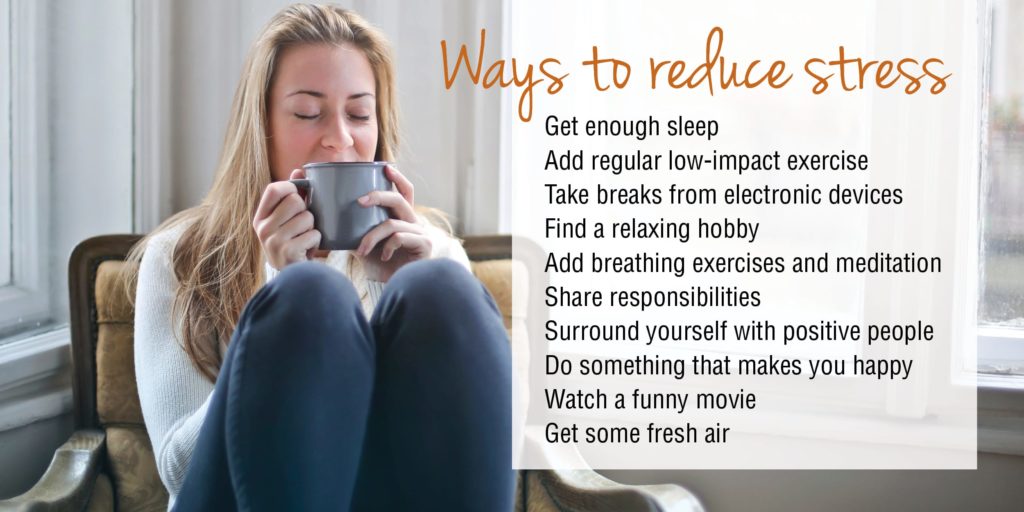Feeling down from time to time is a natural and normal part of the human experience. In fact, mood is one of the many ways our bodies can speak to us, letting us know something isn’t right. Sadness and anxiety can come on during a stressful life event such as the death of a loved one, a divorce, or any number of life challenges. But what if your feelings of depression, anxiety, frequent mood swings and other mood issues don’t seem to go away or they are happening for no apparent reason?
What is Clinical Depression?
When someone experiences persistent and intense feelings of sadness for extended periods of time, they may have major depressive disorder (MDD), also referred to as clinical depression. If you, or someone you know is dealing with clinical depression, you are not alone. According to Mental Health America, one in five adults deals with mood imbalances. That’s over 43 million people in the U.S. alone! Depression and anxiety are the most common mental health issues, and both are increasing in numbers. Not only that, but women are twice as likely to suffer from depression as men of the same age, with about one in four women experiencing symptoms at some point during her lifetime.
Are my hormones connected to anxiety and depression?
Although a variety of factors must be considered, the fact that women are most vulnerable to feelings of anxiety and depression during adolescence, pregnancy, postpartum, premenstrual, and as they enter perimenopause and menopause, points to the role of reproductive hormones in triggering depression. Estrogen boosts serotonin, which can help fight depression. Low estrogen levels, often found in menopause, can cause feelings of sadness and hopelessness. The other major sex hormone, progesterone, helps to balance estrogen, promotes deeper sleep and has a natural calming effect. This is due to its ability to increase GABA, a calming neurotransmitter, which helps you feel relaxed. Progesterone also normalizes libido, is a natural diuretic and a natural antidepressant. Abnormal levels of progesterone can cause insomnia and can contribute to a variety of mood issues.
Stress also plays a huge role in relation to your hormones and overall mental health. Cortisol, our stress hormone, can cause depression if levels rise too high or fall too far below average.
High levels of cortisol can create:
- Agitation
- Increased belly fat
- Insomnia and sugar cravings
Low levels of cortisol can be associated with:
- Inability to handle stress
- Extreme fatigue
- Low libido
- Mood instability
If you are under chronic stress, which many of us are, your body will overproduce cortisol, meanwhile stealing your progesterone to compensate. If your thyroid, adrenal or sex hormones are out of whack, your mood will simply be all over the place. Thyroid hormones, which are involved in regulating metabolism, can also affect mood. Low levels of thyroid hormones, a condition known as hypothyroidism, can lead to symptoms of depression. Other countries that focus on overall health and recognize the importance of lifestyle choices in general are more effective when it comes to reducing mental health issues. Diet, sleep, exercise, and stress all affect our hormones, the fundamental mechanism underlying not just depression, but virtually all of our seemingly malicious health issues.
Traditional medications vs. natural hormone balancing
If you are struggling with any type of mood imbalance, including clinical depression, chances are you were prescribed antidepressants or other mood-stabilizing medications by your doctor. This is where it gets scary. According to a report recently published by MedCo, 25% of women in America take medications for some type of mood imbalance! So, if a quarter of our entire female population is being medicated for depression or something related, it’s safe to say the actual number of women affected may be even higher. If conventional medical doctors consider prescription medications a solution to mood imbalances, why are so many women suffering? These life-long band-aids, which often come with a long list of negative side effects, some of which even include suicidal thoughts, are obviously not addressing the root cause of depression and other mood-related issues.
What if you could help your anxiety and depression naturally? Wouldn’t you want to at least explore the possibility? At BeBalanced, or goal is to uncover the root cause and work to stabilize your mood in a holistic way. Although antidepressants can be a helpful tool, especially in severe cases of depression, they are certainly not the only tool at your disposal. We have worked with thousands of women across the country to improve their moods through natural hormone balancing. In most cases, women are able to reduce and often eliminate their prescribed medications.
Could my birth control be to blame for unbalanced hormones and depression?
While birth control can sometimes cause hormonal imbalances and affect mood, it is not accurate to say that birth control can be universally blamed for hormone imbalances and depression.
Birth control pills contain hormones that regulate the menstrual cycle and prevent pregnancy. These hormones can affect the levels of other hormones in the body and may lead to side effects such as mood changes, headaches, and nausea. However, many women tolerate birth control well and do not experience any negative side effects.
How you treat and feed your body matters!
So, what are some things you can do to naturally balance your moods and help with anxiety and depression? At BeBalanced, our programs are centered around three major tools, that when used together, will help to balance your hormones and your mood.
Stress management and relaxation
As mentioned earlier, stress plays a major role when it comes to hormone health, especially for women. Studies have found that women differ from men not only in their emotional responses to stress, but also that acute and chronic stress may take a greater toll on their physical and mental health. Stress can affect nearly every system in the body, and it may be undermining your health in more ways than you realize. Elevated levels of cortisol, resulting from chronic stress long-term, act as a trigger for depression.
The BeBalanced approach to stress management: To help our clients combat the effects of stress, we use a special music track of sound-wave therapy. The unique sound waves, under the music, work directly on the brain, to promote deep relaxation. This type of music has been scientifically proven in EEG tests to be the equivalent of a 2-hour nap! An eye pillow to promote deeper sleep and aromatherapy oils round out the beneficial components of our relaxation program.
Eat a hormone and mood balancing diet
What you eat affects your mood and can alter your hormones. If you are eating a poor diet containing processed food, refined sugars, and white flour then your meals are completely devoid of nutrients your body needs to balance your mood. An unhealthy diet, environmental toxins, certain medications, and stress can all lead to leaky gut. As a result, your body can’t absorb foods properly. This leads to vitamin and mineral deficiencies, inflammation, health problems, and mood imbalances. We teach that artificial foods are incredibly damaging to your body, robbing you of nutrients while adding harmful chemicals and hormones. To counteract this damage, we equip our clients with knowledge and practical tools to heal and fuel their bodies with whole foods they can find in the grocery store. The specific ratio of proteins, fats and carbohydrates, types and amounts of foods used, are all working together to balance the body.
Mood and hormone balancing supplementation
Even if you are eating the perfect, whole foods diet in the right combination for your body, you may still need additional supplementation to balance your hormones and your mood. At BeBalanced, we offer a wide range of hormone balancing supplementation options.
Supplementation to help depression and anxiety:
- Multivitamin
- Vitamin D
- Omega-3
- Vitamin B
- Magnesium
- Zinc
- Iron
- Selenium
- Natural hormone balancing creams
To find out more about our professional grade, high-quality, hormone balancing supplements, contact a BeBalanced center near you. One of our Natural Hormone Balancing Specialists can help determine the right supplements to help your mood and any other hormone related imbalances.
Get your life back!
At BeBalanced we are passionate about restoring women to holistic wellness! Natural adjustments to diet, sleep, and lifestyle can be life-changing for clients who are struggling with depression. We are not medical, and we are not a quick fix. We are a friendly source of expert advice about balancing hormones and your mood naturally. It is our goal to listen and help you understand what doctors may not have been able to explain. Let us help walk you through the complicated world of hormones, and shed light on solutions to deeply rooted problems. To find out more about our program, set up a free consultation with a BeBalanced center near you. We look forward to helping you get your life back.




